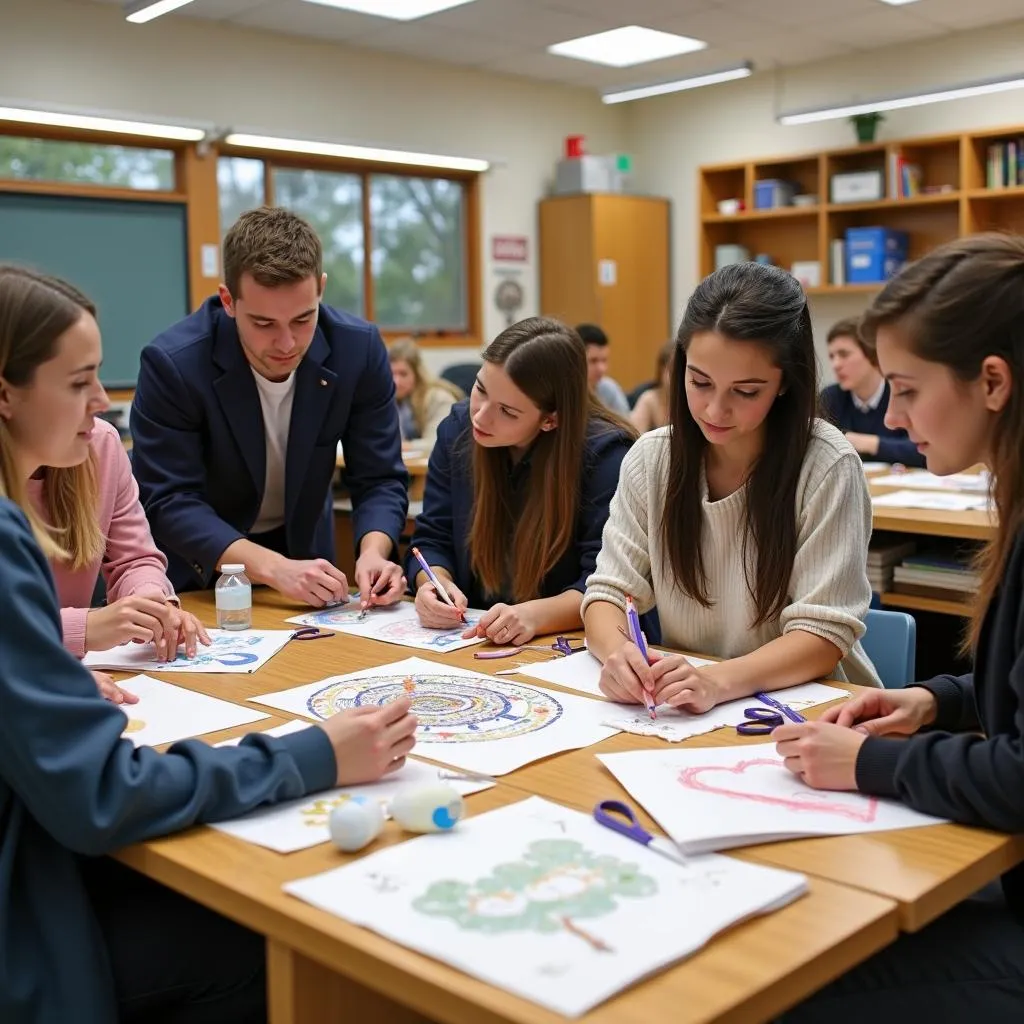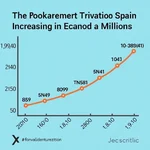The integration of arts into STEM (Science, Technology, Engineering, and Mathematics) education has become an increasingly popular topic in recent years. This subject has appeared in various forms in IELTS Writing Task 2 questions, reflecting its growing importance in educational discourse. Based on past trends and current educational discussions, we can expect to see more questions related to this theme in future IELTS exams. Let’s examine a relevant question that has appeared in recent IELTS tests:
Some people think that arts subjects such as music, drama and creative writing should be made compulsory in science and technology courses at the university level. To what extent do you agree or disagree?
Analysis of the Question
This question addresses the debate surrounding the integration of arts into STEM education at the university level. It requires candidates to express their opinion on whether arts subjects should be mandatory for science and technology students. The key aspects to consider are:
- The potential benefits of arts education for STEM students
- The possible drawbacks or challenges of making arts subjects compulsory
- The relevance of arts subjects to science and technology fields
- The impact on curriculum design and student workload
Sample Essay 1 (Band 8-9)
In recent years, there has been a growing debate about the role of arts education in science and technology courses at the university level. While some argue that subjects like music, drama, and creative writing should be mandatory for STEM students, I partially agree with this proposition, believing that a balanced approach would be more beneficial.
Incorporating arts into STEM curricula can undoubtedly bring numerous advantages. Firstly, exposure to creative disciplines can enhance students’ problem-solving skills and foster innovative thinking, which are crucial in scientific and technological fields. For instance, studying music can improve mathematical abilities, while drama can develop communication skills essential for presenting complex ideas. Moreover, creative writing can help students articulate their thoughts more effectively, a valuable asset in scientific research and report writing.
However, making arts subjects compulsory for all STEM students may present certain challenges. The primary concern is the already intensive nature of science and technology courses, which often leave little room for additional subjects. Forcing students to take arts classes could potentially overburden them and detract from their core studies. Additionally, not all students may have an aptitude or interest in arts, and mandatory participation might lead to reduced engagement and motivation.
A more balanced approach would be to offer arts subjects as electives or integrate them into existing STEM courses. For example, universities could introduce interdisciplinary projects that combine scientific concepts with artistic expression, such as using visual arts to represent complex data or incorporating storytelling techniques in scientific presentations. This approach would allow students to benefit from arts education without compromising their focus on STEM subjects.
In conclusion, while arts education can significantly enhance STEM learning, making it compulsory may not be the most effective solution. A flexible, integrated approach that allows students to explore the intersection of arts and sciences would be more beneficial, fostering creativity and innovation without overburdening the curriculum.
 Arts integration in STEM university classroom
Arts integration in STEM university classroom
Sample Essay 2 (Band 6-7)
The idea of making arts subjects compulsory in science and technology courses at university level is a topic of debate. While some people support this idea, I partially agree with it because there are both advantages and disadvantages to consider.
On the one hand, including arts subjects in STEM courses can be beneficial. Studying music, drama, or creative writing can help students develop creativity and improve their communication skills. These skills are important in any field, including science and technology. For example, a scientist who can write well can explain their research more effectively to others. Also, learning about arts can help students think in different ways, which might lead to new ideas in their scientific work.
However, there are some drawbacks to making arts subjects mandatory. Science and technology courses are already very demanding, with a lot of subjects to study. Adding more compulsory subjects might make the workload too heavy for students. This could cause stress and might affect their performance in their main subjects. Also, not all students are interested in arts, and forcing them to study these subjects might not be effective.
I think a better approach would be to offer arts subjects as optional courses. This way, students who are interested can choose to study them, while others can focus on their main subjects. Universities could also try to include some artistic elements in science courses, like using visual arts to present data or encouraging creative problem-solving.
In conclusion, while arts subjects can be valuable for science and technology students, making them compulsory might not be the best solution. Offering them as optional courses or integrating artistic elements into existing subjects could be a more balanced approach.
Sample Essay 3 (Band 5-6)
In today’s world, some people think that arts subjects like music, drama and creative writing should be made compulsory in science and technology courses at university. I agree with this idea to some extent.
There are some good points about making arts subjects compulsory. Firstly, it can help students to be more creative. When students learn about music or drama, they can think in different ways. This can help them in their science studies too. Secondly, arts subjects can improve communication skills. For example, creative writing can help students write better reports for their science projects.
However, there are also some problems with this idea. Science and technology courses are already very hard and have many subjects. If we add more subjects, students might get too stressed. Also, some students might not like arts subjects and this could make them unhappy.
I think a good solution is to make arts subjects optional. Students who want to learn about arts can choose these subjects. This way, they can get the benefits without forcing everyone to study them.
In conclusion, while arts subjects can be good for science students, making them compulsory might not be the best idea. Giving students the choice to study arts subjects is a better way.
Explanation of Band Scores
-
Band 8-9 Essay:
- Fully addresses all parts of the task with a well-developed response
- Presents a clear position throughout the essay
- Uses a wide range of vocabulary and complex sentence structures accurately
- Organizes ideas coherently and uses cohesive devices effectively
- Demonstrates a sophisticated understanding of the topic
-
Band 6-7 Essay:
- Addresses all parts of the task, though some parts may be more fully covered than others
- Presents a relevant position, but the conclusions may become unclear or repetitive
- Uses an adequate range of vocabulary and mix of simple and complex sentence forms
- Arranges information coherently and uses cohesive devices, but with some clumsiness
- Shows awareness of the issues but may not fully elaborate on them
-
Band 5-6 Essay:
- Addresses the task only partially, with limited development of ideas
- Expresses a position but it may not be clear throughout the essay
- Uses a limited range of vocabulary and simple sentence structures
- Presents information with some organization but may lack overall progression
- Shows some understanding of the issue but with a superficial treatment of the topic
Key Vocabulary to Remember
- Integration (noun) /ˌɪntɪˈɡreɪʃn/ – The act of combining or adding parts to make a unified whole
- Interdisciplinary (adjective) /ˌɪntərdɪsəˈplɪnəri/ – Involving two or more academic disciplines
- Innovation (noun) /ˌɪnəˈveɪʃn/ – The introduction of new ideas or methods
- Curriculum (noun) /kəˈrɪkjələm/ – The subjects comprising a course of study in a school or college
- Aptitude (noun) /ˈæptɪtuːd/ – A natural ability or skill
- Articulate (verb) /ɑːrˈtɪkjuleɪt/ – Express thoughts or feelings fluently and coherently
- Foster (verb) /ˈfɑːstər/ – Encourage the development of something
- Elective (noun) /ɪˈlektɪv/ – A course that a student can choose to take, rather than one that is required
- Intersection (noun) /ˌɪntərˈsekʃn/ – A point where two or more things come together
- Collaborative (adjective) /kəˈlæbərətɪv/ – Produced by or involving two or more parties working together
In conclusion, the integration of arts into STEM education is a complex and nuanced topic that is likely to appear in future IELTS Writing Task 2 questions. By understanding the various perspectives and being able to articulate them clearly, you can prepare yourself for similar questions. Remember to practice writing essays on related topics, such as the importance of environmental education in primary schools or digital transformation and its effects on education. These topics share themes of educational innovation and interdisciplinary approaches, which can help you develop a well-rounded understanding of contemporary educational issues.
To further improve your skills, try writing your own essay on this topic and share it in the comments section below. This practice will help you refine your ideas and writing style, preparing you for success in the IELTS Writing Task 2.


